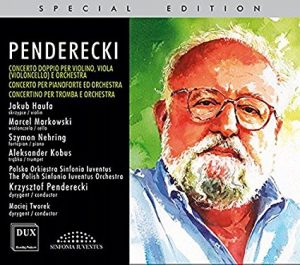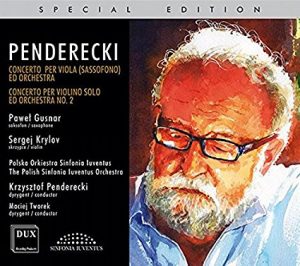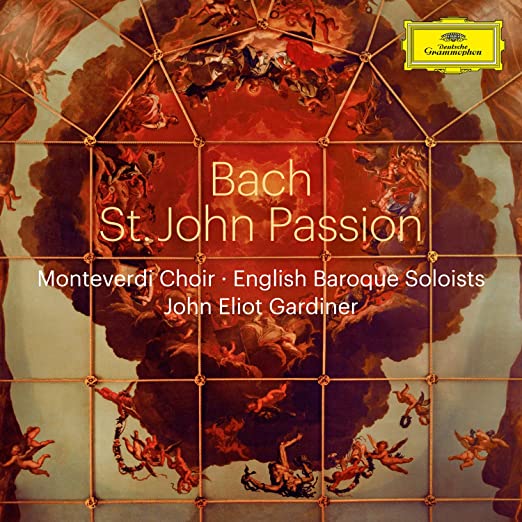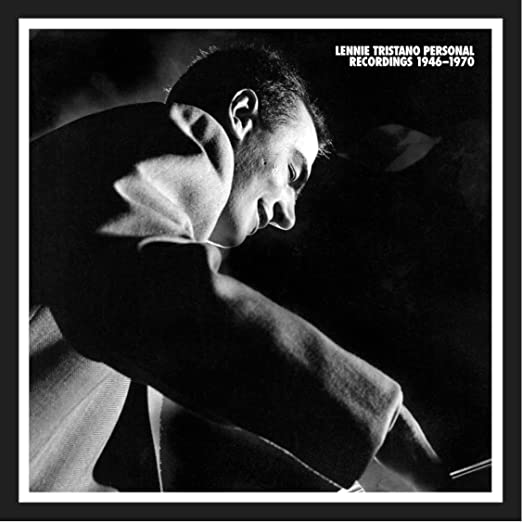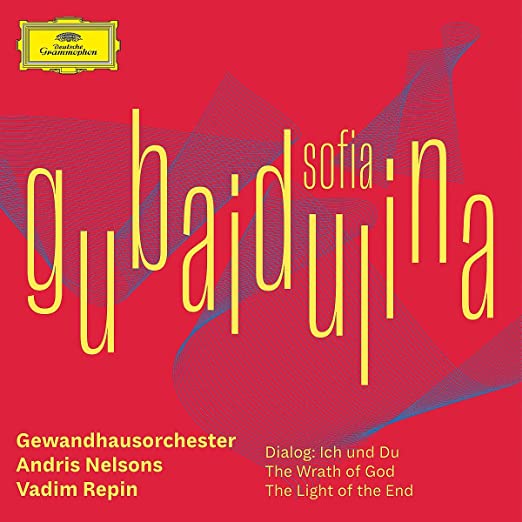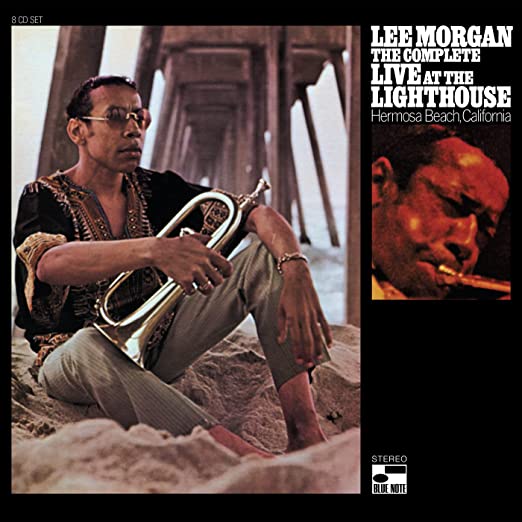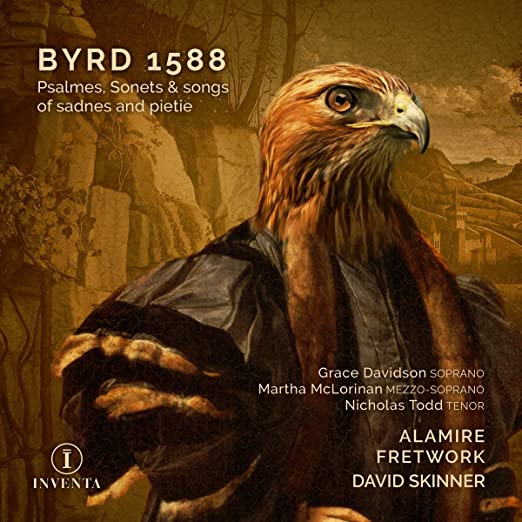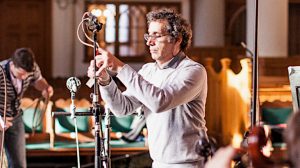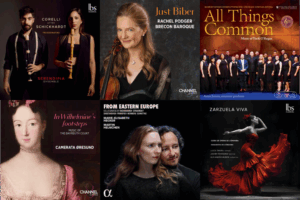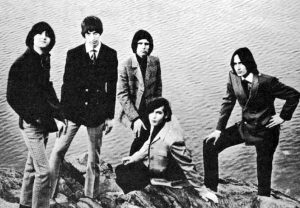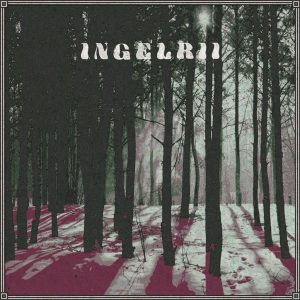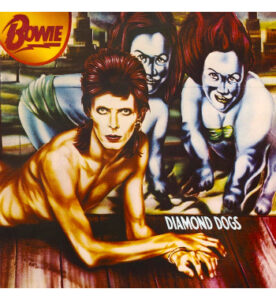Johann Sebastian Bach, Cantatas for Bass. Matthias Goerne, baritone. Freiburg Baroque Orchestra. Gottfried von de Goltz. Harmonia Mundi HMM 902323.
If dark power is what you want in Bach's cantatas for bass—and you surely should—then Matthias Goerne is the answer to your prayers. Eloquent darkness is not always what we get from true basses, but it is exactly what you get from a low baritone like Goerne. Though of course, no one is really like Goerne. He is a human double bass, bass trombone, contrabassoon. The power of his voice brings a degree of drama to this music it does not always have. It changes these cantatas, giving them a different life. Bach orchestrated these cantatas with an oboe instead of the expected violin, two cellos, a double bass, and a bassoon—all to amplify the music's richness. The album includes a wonderful concerto for oboe d'amore, reconstructed from the popular keyboard concerto, BWV 1055. This CD should get some attention for album of the year.
Penderecki, Concerto Doppio for Violin and Cello and Orchestra; Concerto for Piano and Orchestra, Concerto for Trumpet and Orchestra. Polish Symphony Juventus (Youth) Orchestra, Krzysztof Penderecki, director. Dux 1344.
Penderecki, Concerto for Saxophone and Orchestra; Concerto for Violin Solo and Orchestra No.2. Polish Symphony Juventus (Youth) Orchestra, Krzysztof Penderecki, director. Dux 1345.
My nominee for the world's greatest contemporary composer marches on, here at the age of 84, without a sign of having lost a feather from his wings. All of this music is powerful, passionate, eloquent, and modern with an Eastern European heart. And in this continuing Special Edition from the Polish label Dux, it features a youth ("the Juventus") orchestra made up of the "most talented under thirty students and graduates of art schools" led by the composer. I've been listening to this series as it's come out and never noticed that a good many feature the "Juventus" orchestra. What an extraordinary tribute to music education in Poland, or at least Eastern Europe. The orchestra has been existence since 2008, has performed with scores of major conductors. (http://sinfoniaiuventus.pl/en)
There is far too much music to 'cover' here so we'll settle for two representative works on the #1344 disc. The Concerto Doppio (dual) for Violin and Cello (2012) marries recognizable Eastern European lamentation with a fierce, chromatic resistance that cuts across its plaintive song and which soon dominates the discourse, the solo violin and solo cello making their case for a more complex and passionate way of addressing our condition. There is plenty of room in this music for lyrical lament but it must exist within a context of drama, protest, resistance. This contrast is where the life of Penderecki's music usually lives. This fairly brief (21 minutes) work is one of the composer's most moving. It could change your whole perspective on what is still possible in modern music.
The Concerto for Piano and orchestra (2001-2002; revised 2007) gives us the power of a nineteenth century romantic piano concerto in a modern idiom. Arguably that's what Penderecki is always doing: giving us the scale and emotion of nineteenth century music in a form that can move us as that music once did. That is what we thought was no longer possible. There is great beauty in this music along with its drama and power. There is always beauty in Penderecki's music, which is what keeps bringing us back to it. And there are no misgivings in submitting to it because it will be paid for in the furious passages to follow. The whole emotional range seems to exist in everything we hear from him.
Wouldn't you love to know what the 2007 revisions were? The foundation of this work seems to be the firm low strings and low brass. Maybe the changes came there. This concerto is twice as long as the one for violin and cello—and every one of its 40+ minutes is spellbinding.
System used for this audition: Resolution Audio Cantata CD player w/BlackJack power cord; Audio Note OTO Signature tubed integrated amplifier with Audio Note K/SPx SE loudspeakers; Crimson interconnects and speaker cable; Mapleshade Samson equipment rack.
Bob Neill, a former equipment reviewer for Enjoy the Music and Positive Feedback, is proprietor of Amherst Audio in Western Massachusetts which sells equipment from Audio Note (UK), Blue Circle (Canada), Crimson (UK), Jean Marie Reynaud (France), Resolution Audio (US), and Tocaro (Germany).





